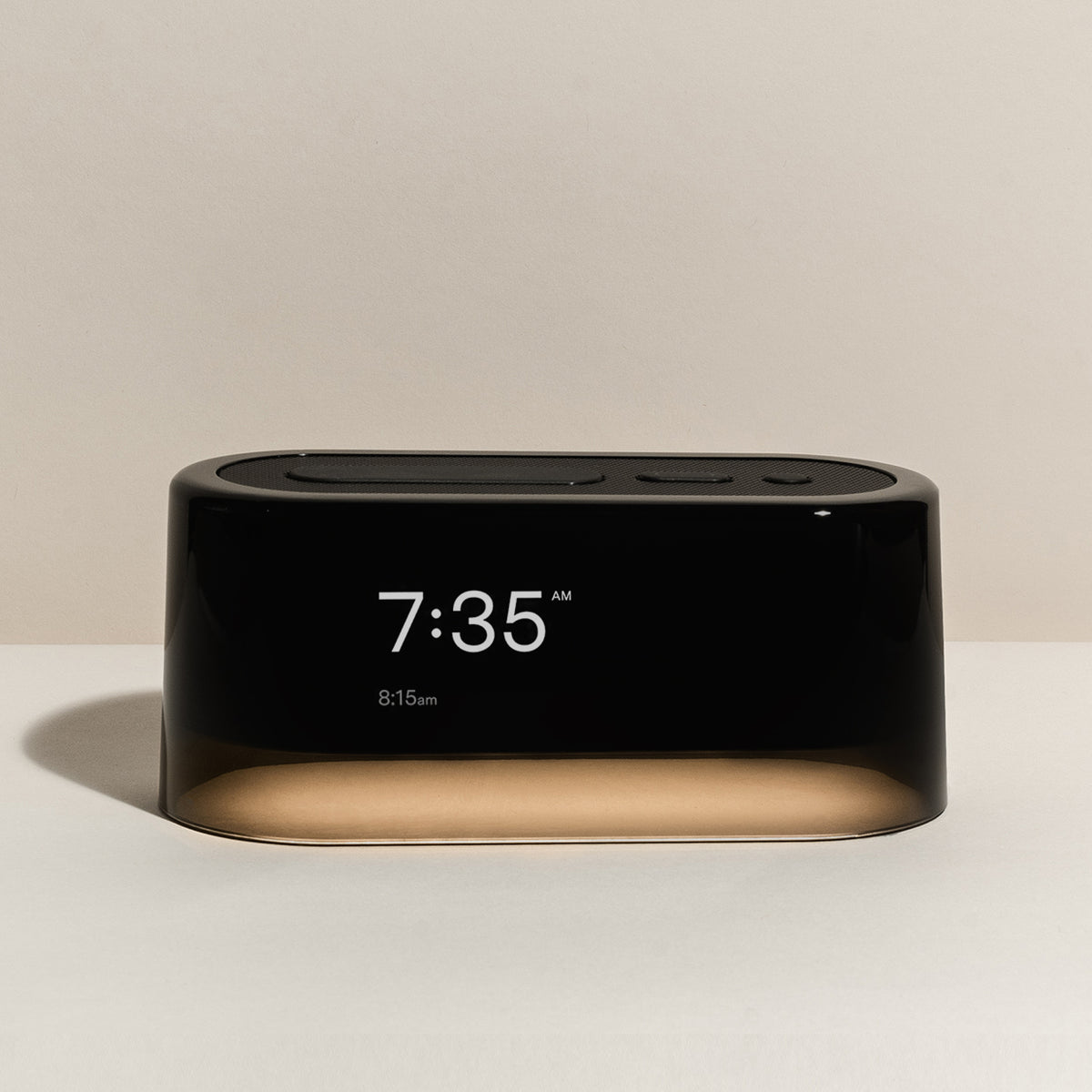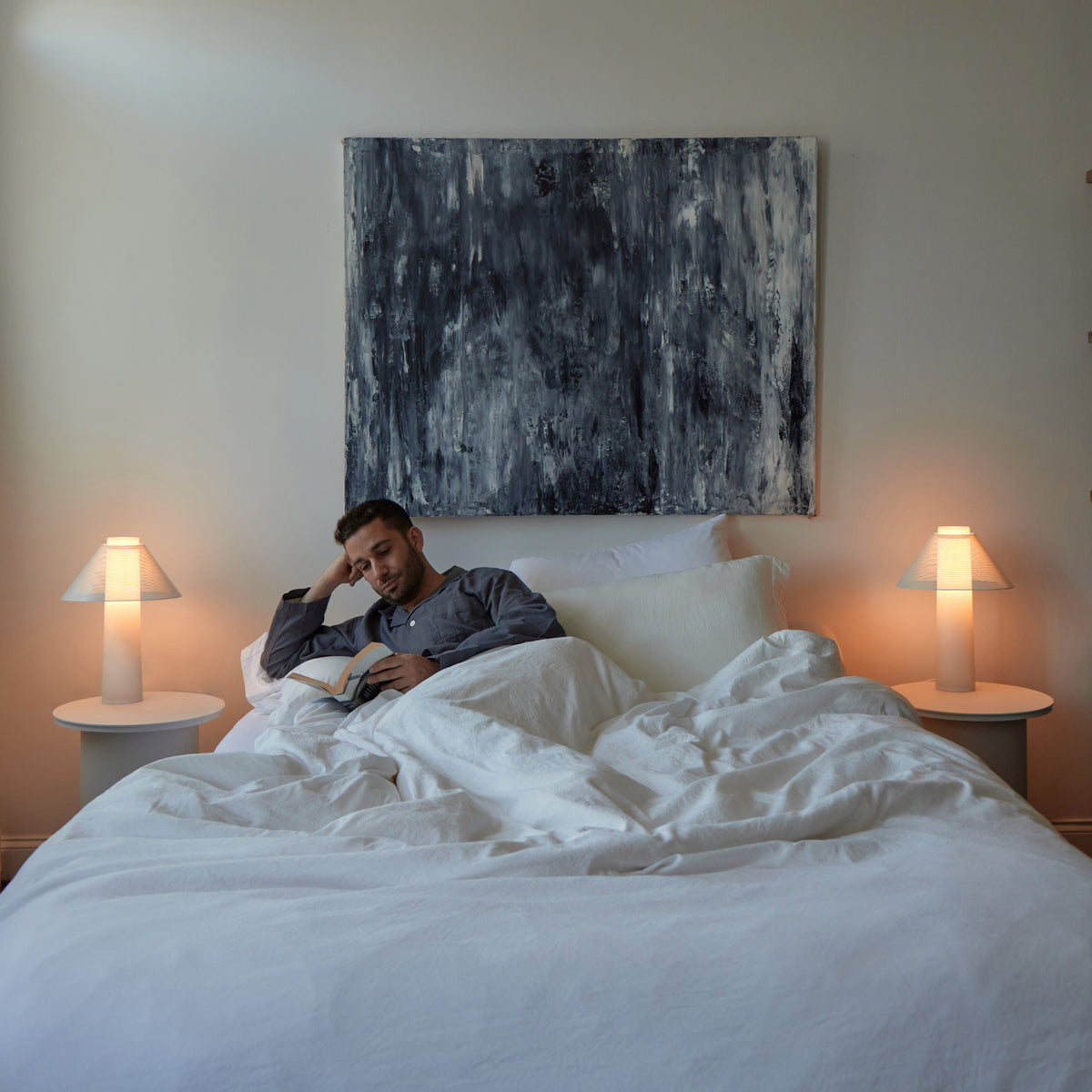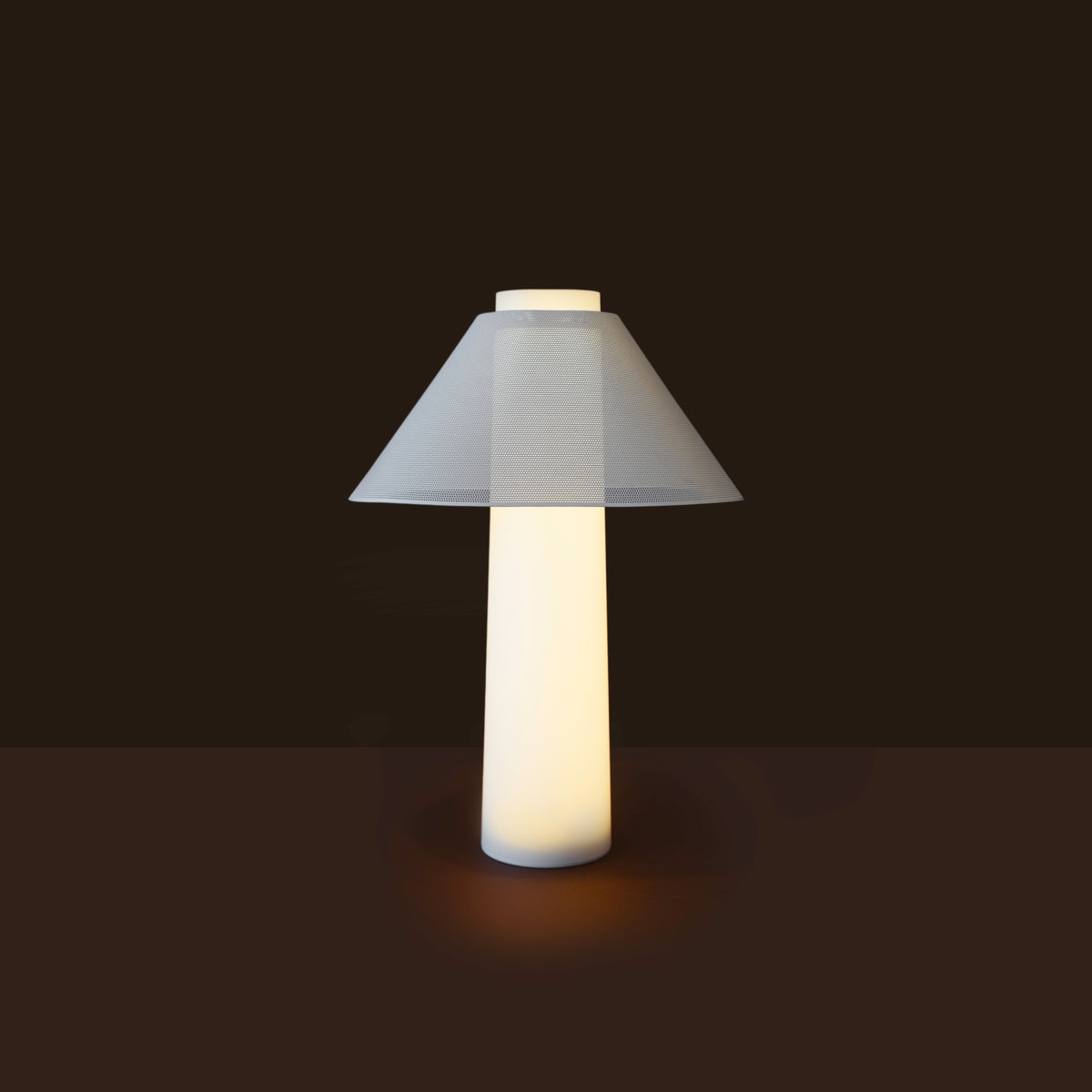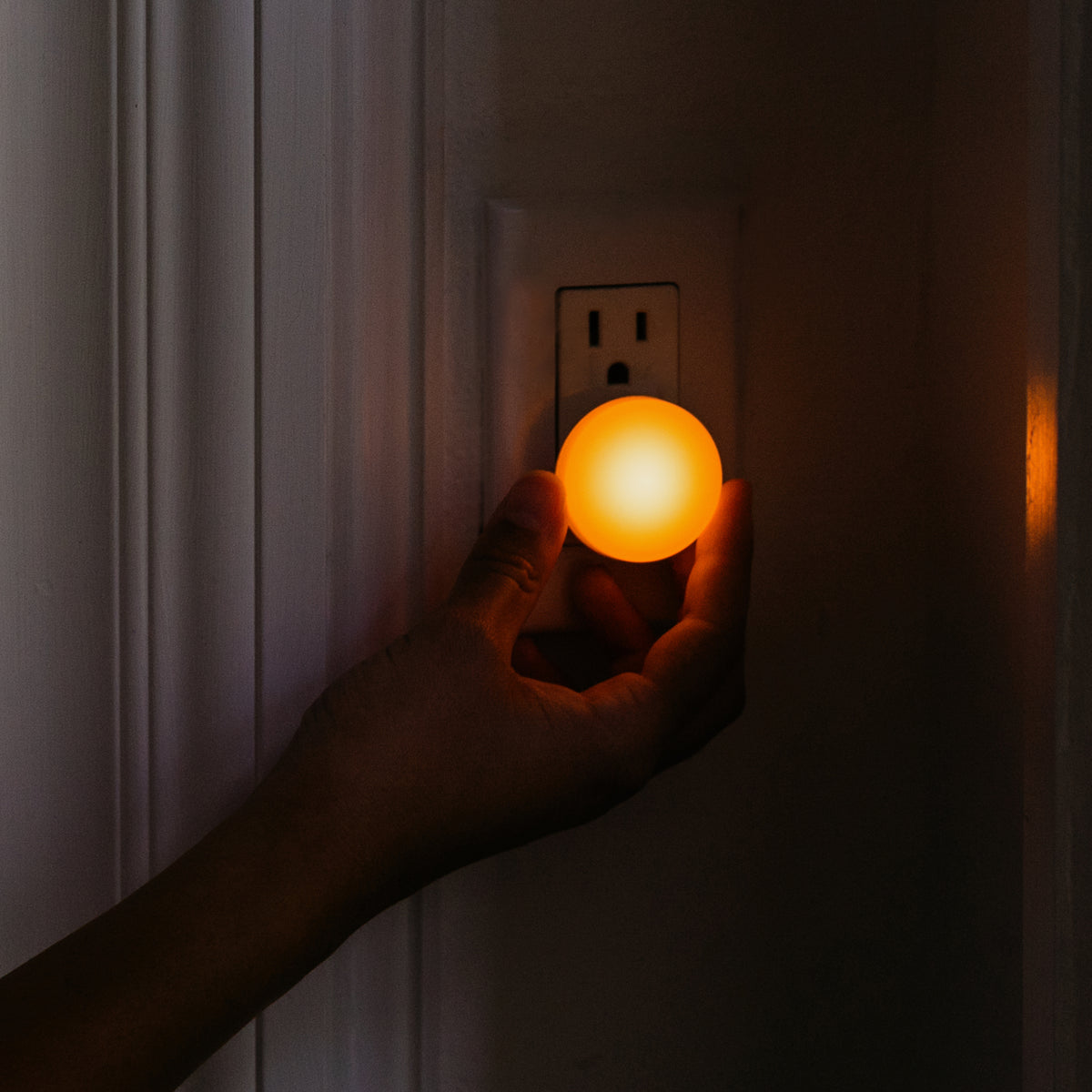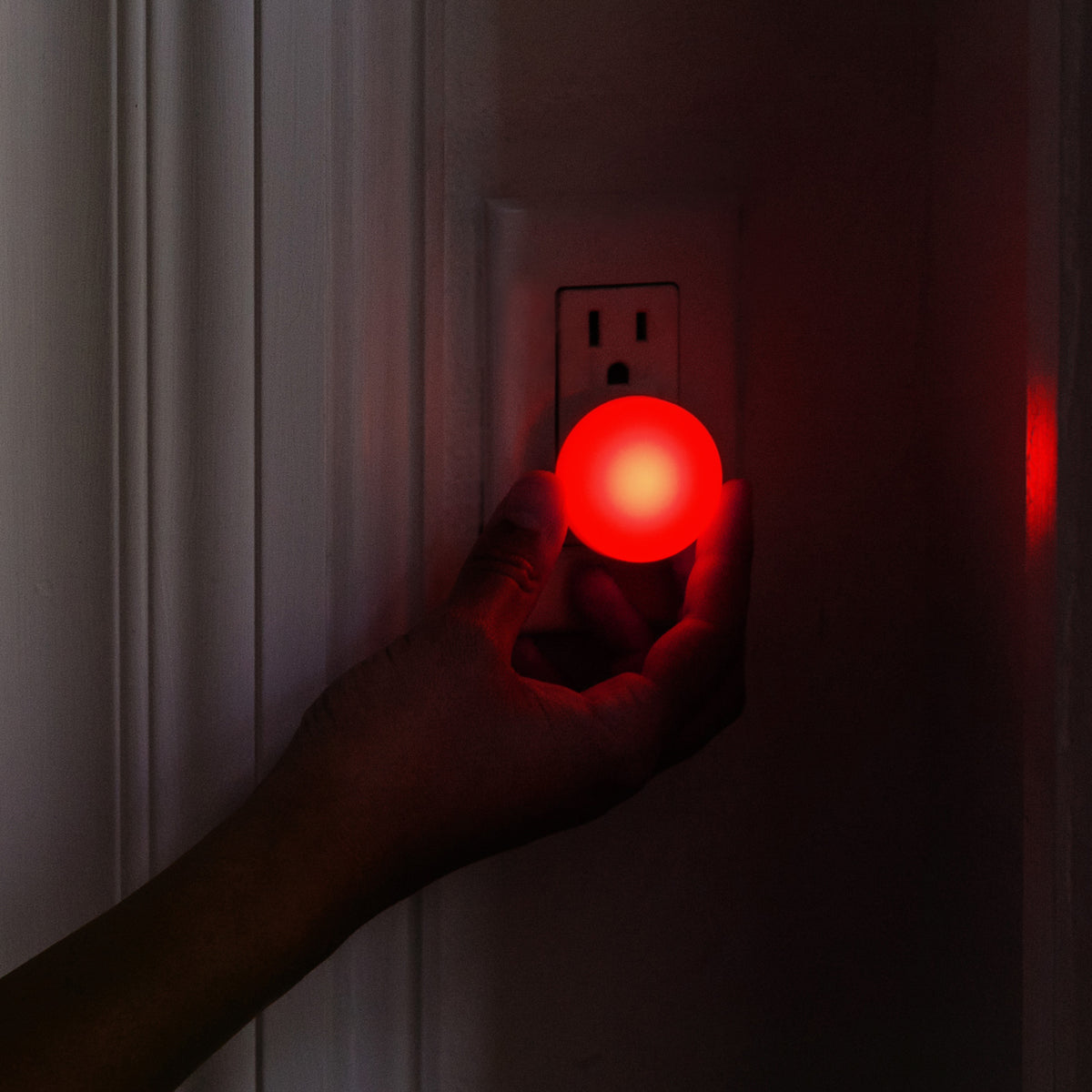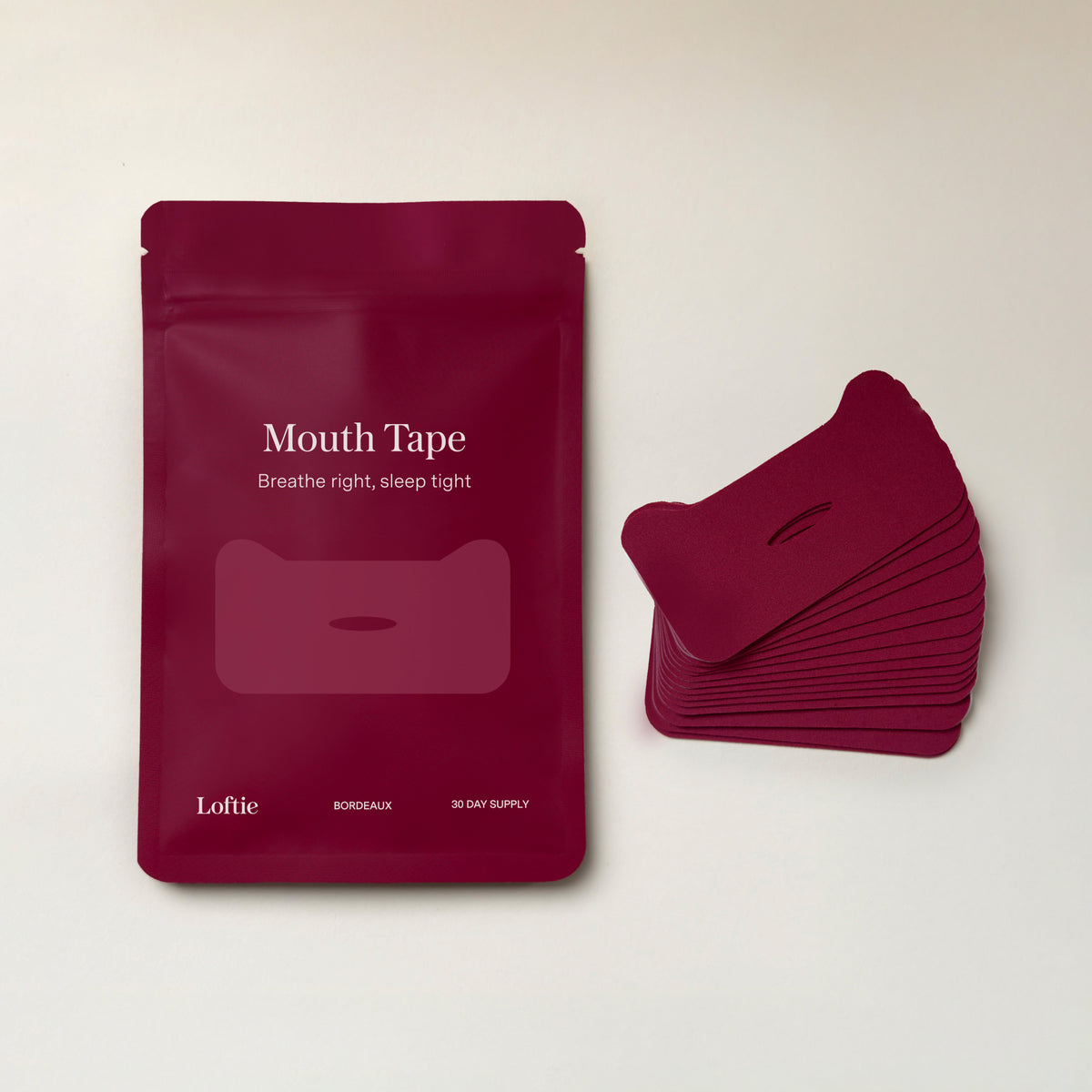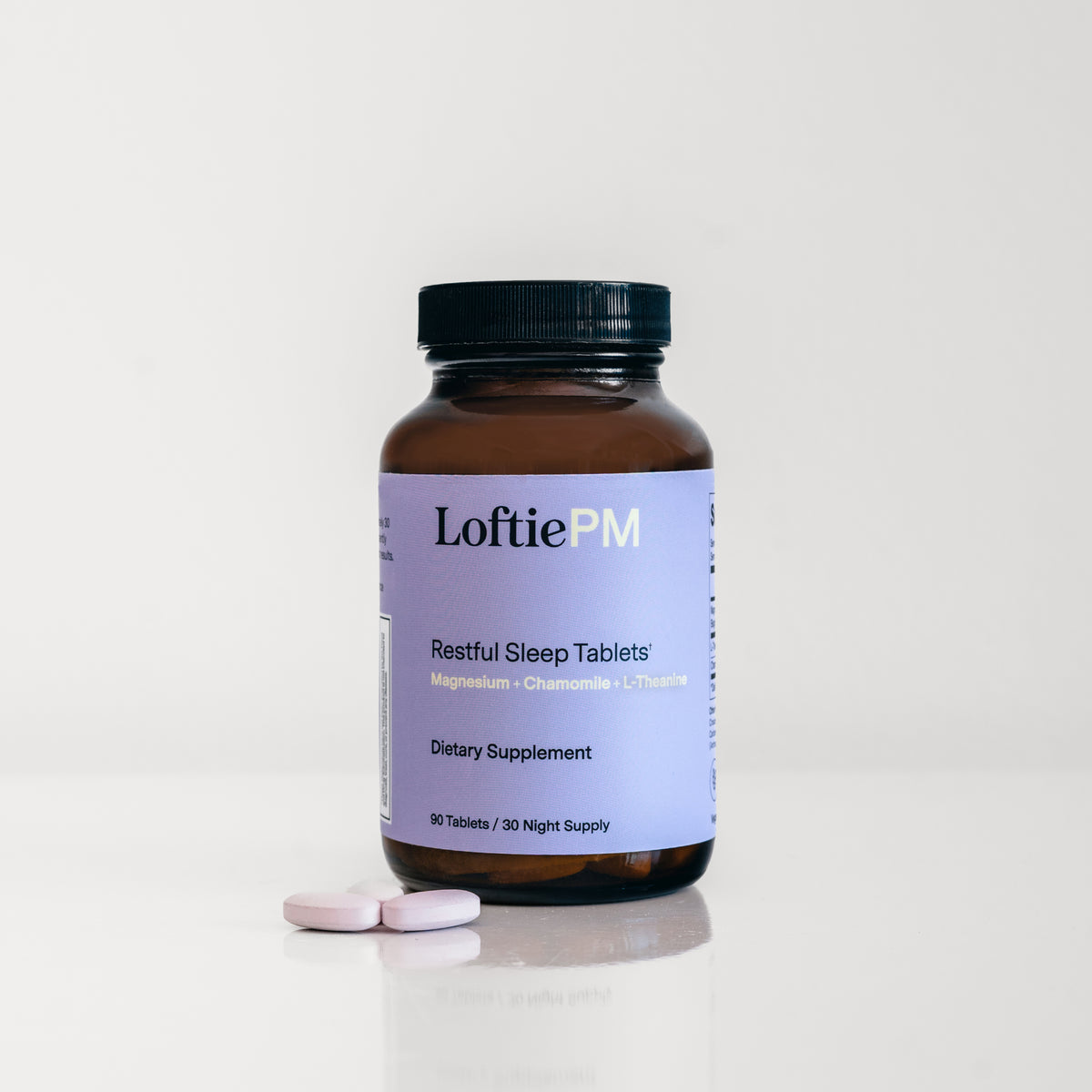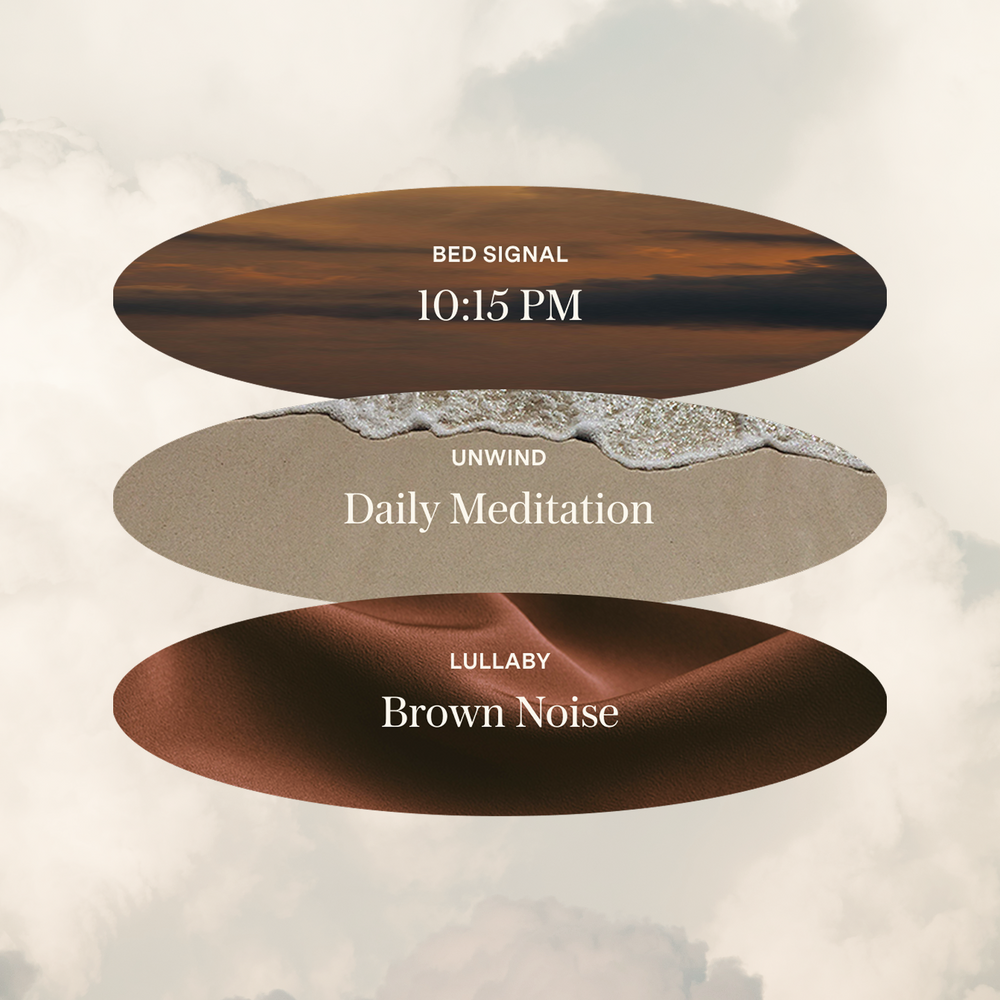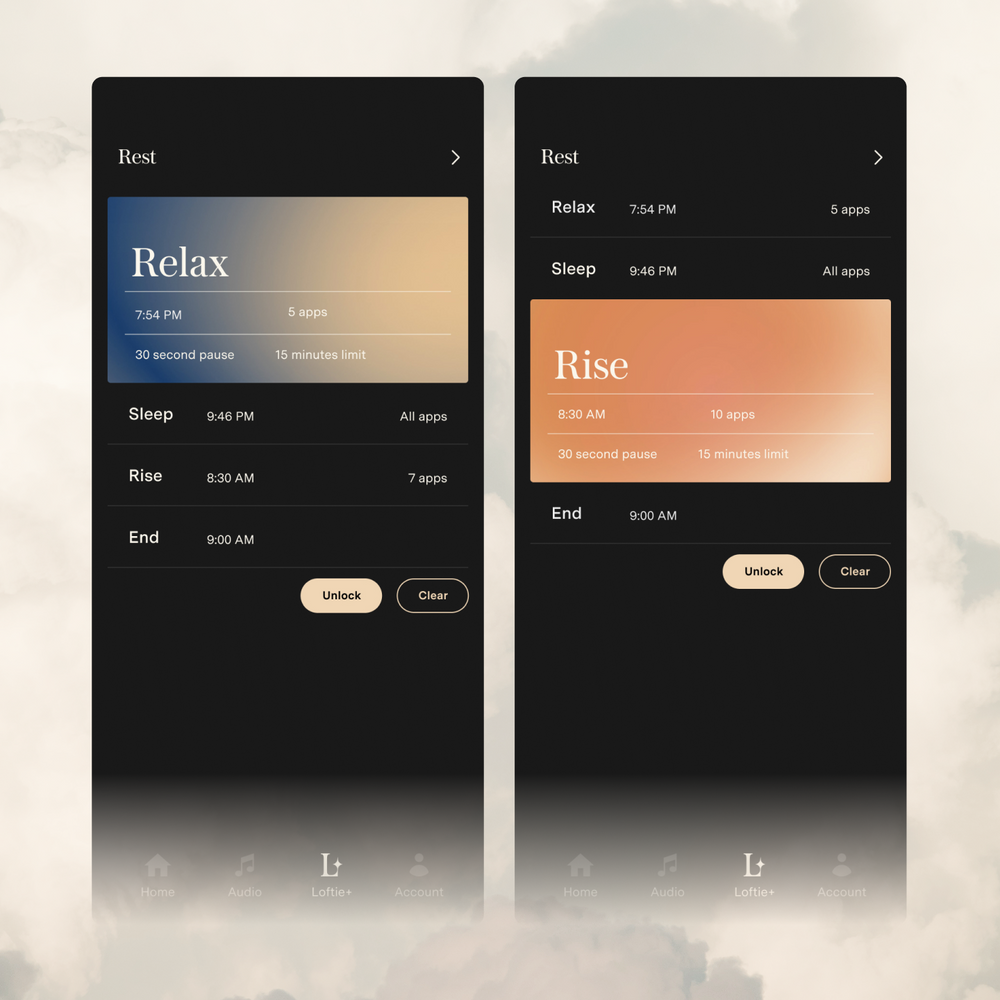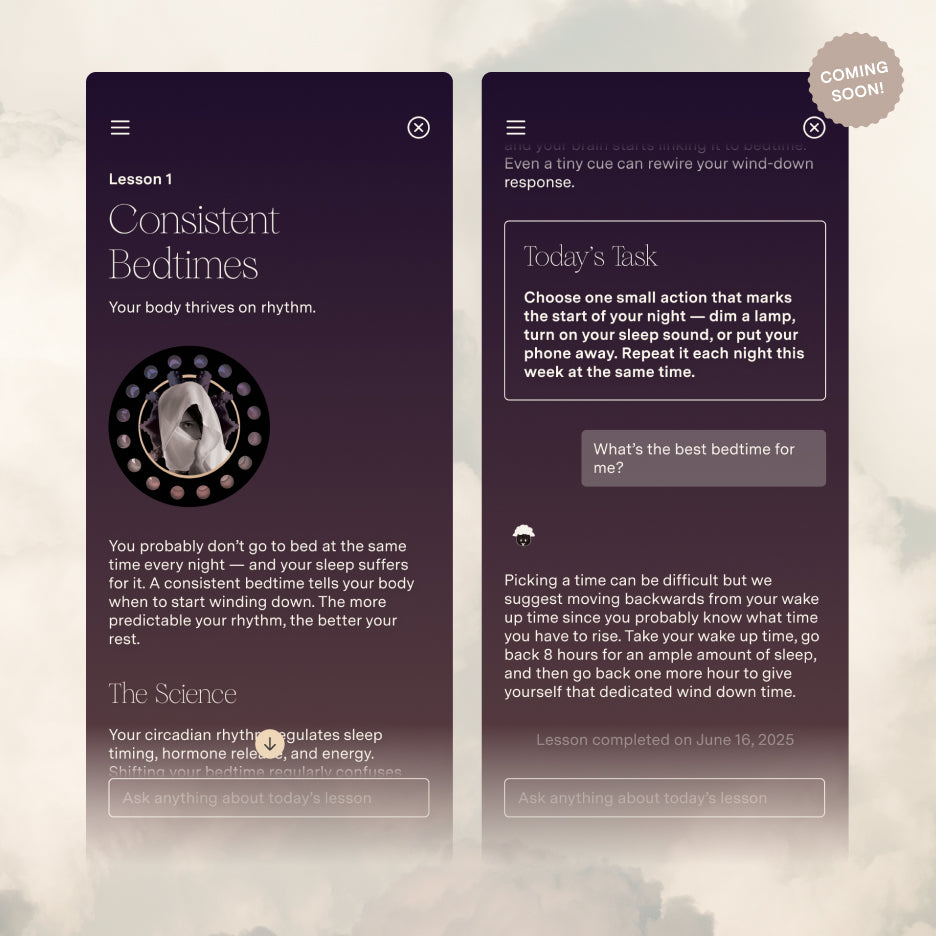It’s not difficult to list the stressors that come up any given day. So why is it that the moment we finally do get the peace and quiet we want so badly, it feels almost impossible to enjoy? The struggle with racing thoughts before bed, is a very common one. According to the Anxiety and Depression Association of America, 40 million Americans report struggling with a form of anxiety every year. Bedtime can be a time when we feel it most acutely. There’s many reasons for nighttime anxiety. For some, it can be caused by the inability to fall asleep, and others it’s due to reflecting on daily stressors or even trauma. Sleep anxiety has many forms. Thankfully, there are ways to self-soothe so you can settle into a good night of sleep and get back on track to feeling your best.
Why is anxiety common at night?
After a long day, quieting the mind sounds like something that would be easy to do, so why do I get anxiety at night? The truth is, the moment everything slows down, is usually the moment we feel the heaviest weight of our world. Anxiety can be insidious in this way. It finds us at our most vulnerable when we need nothing more than a moment of rest.
How anxiety affects sleep
Anxiety at night is often connected to sleep disturbances like insomnia. Experts suggest that one usually contributes to the other. In 2013, researchers found that treating sleep disorders like insomnia can potentially prevent anxiety and depression from developing. And a more recent study from 2019, found that those who experience insomnia symptoms (difficulty falling or staying asleep or a general feeling of having properly rested) are vulnerable to feelings of anxiety during times of stress.
Tips for managing your anxiety at night
If you find yourself experiencing anxiousness, restlessness, or ruminating thoughts before bed, here’s how to calm anxiety at night.
Transition from day to night
Similar to warming up before a workout, preparing for bed can have the same effect on our mindset. We suggest setting the mood for your mind and body. Assess your routine before bed, are you up paying bills, watching the news, or doom scrolling on your device? Some of these habits can trigger anxiety without us even realizing it. Trying dimming the lights, limiting exposure to screens, and opting for blinds that block out light. If you have electronics in the bedroom, Dark Dots can help black out LED lights without completely overhauling your setup.
Go to bed around the same time every night
It’s tempting to push the ‘snooze’ button after a bad night of sleep. However, one of the best ways to avoid long-term issues with sleep and anxiety is to fight the urge. Our bodies love routine. Each of us has a 24-hour internal body clock known as a circadian rhythm that signals to our mind when it’s time to rest and when it’s time to wake up. Our circadian rhythm thrives on consistency which is why sticking to a bedtime and a wake time are key, especially when we’re dealing with anxiety. It’s best to keep your bedtime and wake time within a 20-minute window. This simple practice can train your body to naturally fall asleep and wake up at the same time (even on the weekends).
Try breathing exercises
When we’re feeling the onset of nighttime anxiety, a great tool to incorporate into a nightly routine is breathwork. If you’ve ever seen or experienced a panic attack, then someone might offer breathing into a bag, this controlled breathing has an instantly calming effect. Diaphragmatic breathing (also known as belly breathing) is a quick way to activate the vagus nerve that can signal to your mind and body that it’s time to rest and digest.
Write down your thoughts and worries
There’s a reason we write down a list of to-do’s, it allows us to compartmentalize and move onto the next thing we need to accomplish. We can do the same thing with ruminating thoughts or worries before bed. The act of writing them down in a nightly journal can provide space to clear the mind, create distance from our thoughts, and allow our mind and body to transition into a restful night of sleep.
Refocus your mental energy
Have you ever gone on vacation and noticed that you sleep better in a different space? It might be because you were able to shift your focus by changing your surroundings. It may sound counterintuitive, but low-grade, constant sounds or prompted visualizations can release worrying thoughts and night anxiety. If you feel anxious, the sleep sound settings in the Loftie Clock can allow you to shift your mental energy. Try some white noise, crashing waves, or wind blowing in the trees to help you settle into sleep.
Create a comfortable sleep environment
The best way to alleviate anxiety at night is to create a cozy oasis that makes you feel relaxed. Reserve the bedroom as a space for rest and intimacy. Keep it simple with comfortable bedding and dim lighting that’s conducive to sleep. Additional comforts like weighted blankets and maintaining a room temperature of 65 degrees fahrenheit can help. Adding a cooling effect can help you naturally produce melatonin to help you fall asleep faster.
Don't lie in bed awake
If you still find yourself tossing and turning from restlessness or anxiety, the best thing to do is to get out of bed and do something else. Give yourself 20 minutes to reset by sitting and reading, drinking a cup of hot tea, or doing a very low-stress, soothing activity. We suggest avoiding bright lights or watching anything on a screen as this can stimulate rather than wind down. The Loftie Lamp has a special “reading in bed” setting that softly illuminates from above so you can keep devices out of the bedroom. Once you feel a sense of calm again, try getting into bed again.



